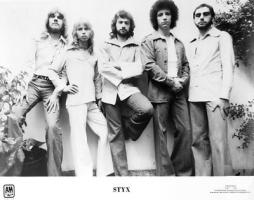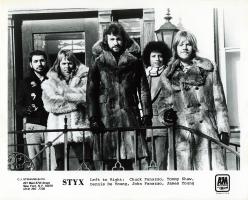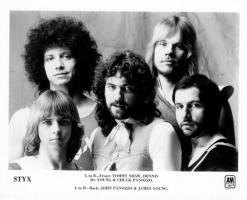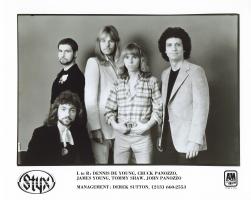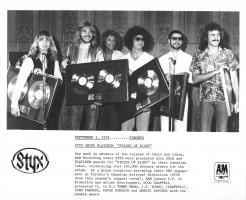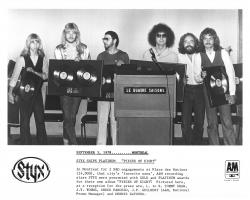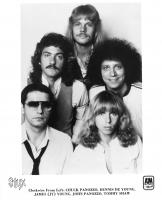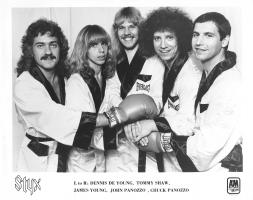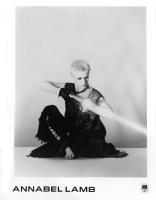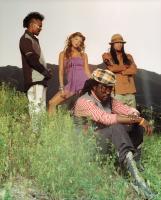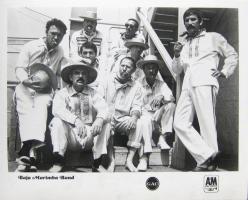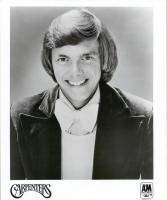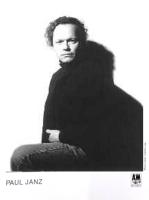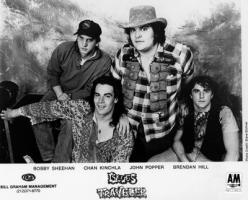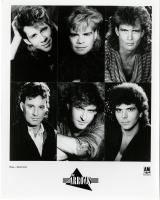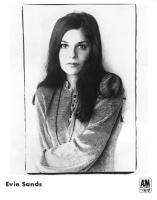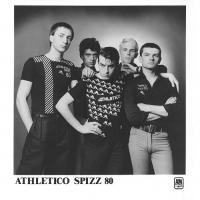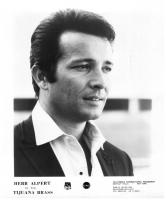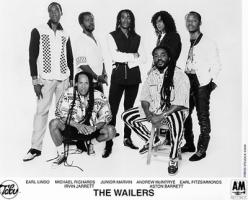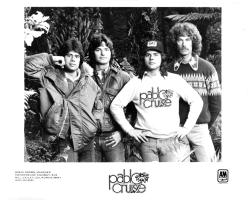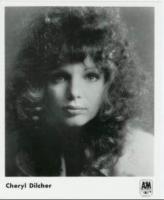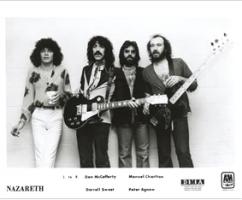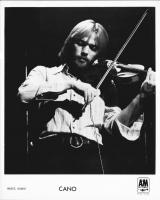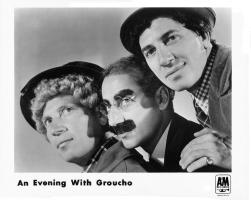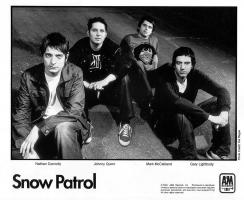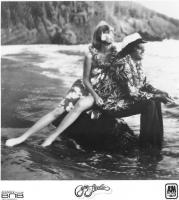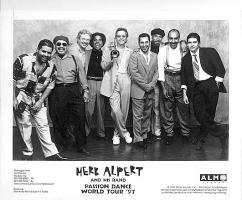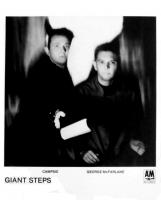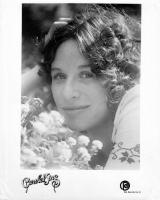Styx
"What really matters to us is the music, because ultimately that's what will live on....I really believe in the quality of our songs, and I believe that they'll live on. Y'know, in years to come, when everyone's forgotten about Styx, they'll still remember songs like 'Lady.'...That's the most important thing to us."--Dennis DeYoung (Melody Maker, June 3, 1978)
"We got wooed by CBS, Warner Bros. and A&M to sign. CBS and Warner Bros. offered us more money, better deals in terms of royalty points. But I convinced the band to go to A&M, because I believe that our recordings wouldn't be a one-off album to them. That they would try to allow us to have a career. Those were the golden days of the 70's to be at A&M Records, because Jerry Moss and Herb Alpert really believed in the artists. It wasn't just bullshit, it was real."--Dennis DeYoung, Goldmine #502
"We at A&M have taken great pride in participating in the Styx success story. Breaking an act is still the most exciting part of this business, and from the very beginning our marketing and promotion approach has always been linked to Styx' immense dedication to their goal of becoming the best and the biggest. In the best tradition of American rock 'n' roll, Styx has always been a hard-working touring band, with an impressive knowledge and understanding of their audience....Considering the difficulties, and sometimes the resistance, that Styx has experienced, only a group with the commitment and vision engendered by being together for 10 years could have survived and finally triumphed with their music intact."--Gil Friesen, A&M Records President (Billboard October 11, 1980)
"Signing Styx was one of those things a record man dreams of. For as much as two years before we signed them in 1975, I was aware of the band and liked them. When I found out they were available, I jumped at the chance to sign them....They went on to become the number one American band in the U.S., selling out concert tours when other tours were being cancelled and selling millions of albums a year when there was a recession hitting the record industry....What has brought on this large world following is, in addition to basic talent, versatility. The group as a fine ability to write and perform ballads, yet Styx is a rock 'n' roll band. Its audience is diversified. They accept the genuine quality of this band."--Jerry Moss, Chairman, A&M Records (Billboard October 11, 1980)
In 1975, Styx was sued three times by its previous label, Wooden Nickel Records. The last suit sought to keep A&M Records from signing and releasing. Kip Cohen, head of A&R for A&M Records, made signing Styx to A&M possible."
"Suite Madame Blue" was recorded in one take.
John Curulewski left Styx in December 1975. The band's road manager recommended Tommy Shaw to replace JC.
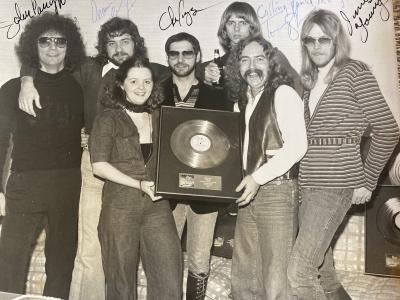
Styx with Lorna Richards and JP Guilbert celebrating Equinox going gold in Canada
Styx played 186 dates in 1976.
Chuck Panozzo represented the band with A&M's graphic department on album covers.
The Grand Illusion sold over 3 million copies and stayed on the U.S. charts for over two years.
"Babe" was recorded in one take. The original plan for the song was that it be played on a grand piano, however, the one in the studio was out of tune so a Fender Rhodes was used. The song introduced Styx to a larger audience,
A&M Canada created the "Styx Programme" to promote Pieces of Eight and the Styx catalog. Retailers got a discount on all Styx albums and tapes. Another part of the program was the gold vinyl limited edition of the new album.
A Gallup poll in 1980 found Styx was the United States' favorite rock band.
In 1980, in the middle of a recession in the music industry, Styx concerts were selling our arenas while other bands were cancelling tours.
"Styx had four triple platinum albums in a row.
Cornerstone sold three million copies in its first year of release.
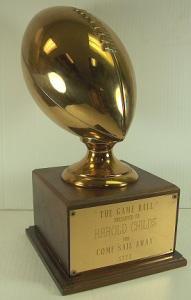
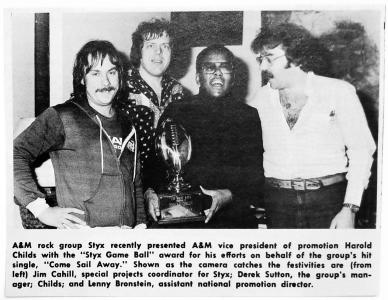
Styx got a court order for federal marshals to seize illegal tee shirts at their Chicago and Madison Square Garden appearances. Styx held the marketing and trademark rights to their name and likeness.
Paradise Theatre was Dennis DeYoung's idea. It was a metaphor of what was happening in the U.S. after the difficulties of the 1970s, what needed to be done in the 1980s to right things, "Too Much Time On My Hands" was only an intro phrase when Tommy Shaw arrived at the studio where the band worked out the song.
Their 1981 album sold nearly three million copies during the year. The average ticket price for the 1981 tour was $10.50. The tour supporting Paradise Theater was the largest in rock and roll history reaching over 1.5million people. The tour cost $4 million, required a 46-man crew, and nine vehicles to move the equipment to 140 dates in the U.S. and Europe. Ticket sales were estimated at $15 million. Tour merchandise and album sales were estimated to gross $60 million in 1981. Advertizing cost for the tour and album was $2.5 million. Radio stations were supplied with radio spots that advertised the tour and the album and also spots that allowed the station to customize for their audience and sound. A&M created a binder with the band's marketing and promotional history; analyzing local and regional retail sales, concert ticket sales, and radio airplay. The label hoped to be more effective in reaching customer support.
In England the promotion for Paradise Theatre included a radio ad campaign with 60-second ads that began on January 16, 1981 and ended three weeks later.
In Europe, A&M invested $250,000 in its "Paradise Theatre" campaign. The campaign began in January 1981. In June, European journalists were sent to see Styx in Philadelphia. By September 1981, the album sold 135,000 copies in Europe but A&M believed that the band's European tour could raise album sales to 250,000 copies in West Germany alone. Tour promotion was $100,000 in advertizing, and posters in Germany, Sweden, Holland, and Belgium because Styx was A&M's third best-selling act in Europe after Supertramp and the Police. A&M predicted sales of 20,000 copies in Scandinavia; 20,000 copies in France; 30,000 in Holland and 250,000 in Germany.
Kilroy Was Here was a rock opera on censorship, robotics and technology. It was also released as an audiophile album. It was the largest audiophile pressing ever with an initial printing of 800,000 copies on Keysor Century's KC-600 vinyl compound. The discs required longer press time, more supervision and more checks of finished discs. At the time, A&M used four printing plants in the U.S. and two more in Canada.
Dennis DeYoung wrote seven of the eight Billboard top 10 singles by the band. This led to A&M offering him a contract as a solo artist.
The "Kilroy Was Here" tour was filmed by Jerry Kramer and Associates and made into a one-hour program for Showtime and MTv.
Styx sold over 20 million records for A&M between their signing in 1976 and 1984.
The Styx single "Babe" sold 1.5 million copies and was their only #1 single in the United States.
With four consecutive multi-platinum albums, Styx achieved sales that the Beatles never did.
"Mr. Roboto" was featured in a Volkswagen commercial.
"Lady" appeared in an episode of the television show "The Simpsons."
OFFICIAL PROMOTION BY A&M RECORDS
Equinox New Music On A&M Records
Crystal Ball New Music On A&M Records
The Grand Illusion press release
The Grand Illusion New Music On A&M Records
Styx: Cornerstore
Styx: Pieces Of Eight
Rockers liner notes
Rockers press release
20th Century Masters liner notes
20th Century Masters press release
The A&M Albums 1975-1984 press release
Styx biography 1978
Styx biography 1979
Styx biography 1981
Styx biography 1983
Styx biography 1984
Styx biography 1990
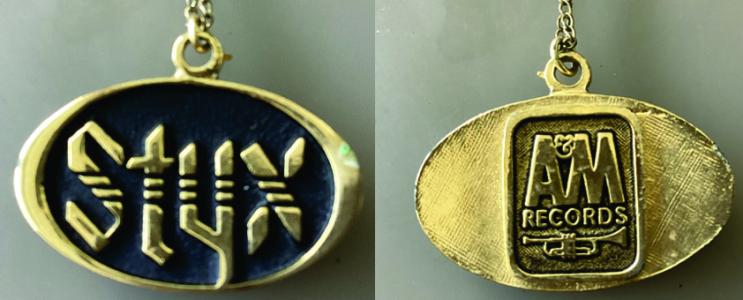
Official website: styxworld.com
- A&M, Styx Face Lawsuit by Wooden Nickel Records. Billboard, November 22, 1975.
- Hix Nix Styx Lix. Melody Maker, June 3, 1978.
- A&M Initiates Extensive Promo Push For Styx. Cash Box, September 9, 1978.
- Styx T-Shirts Said to Be Bogus Seized. Billboard, March 1, 1980.
- Intensive Planning Behind 140 Dates on Styx's 1981 Road Trip. Billboard, December 6, 1980.
- In-Depth Marketing Data For Accounts Is Styx' Sales Tool. Sam Southerland. Billboard, January 31, 1981.
- 110-Date Styx Tour a Winner; Now Comes Time for a Vacation Cary Darling. Billboard, September 5, 1981.
- Styx LP Gets New A&M Europe Drive. Billboard, September 26, 1981.
- Styx Album Is Audiophile Test. Sam Sutherland. Billboard, March 12, 1983.
- Styx's Gutsy City Slicker. Edward M. Bury. Illinois Entertainer, February 1986.
- Paradise Theater Press Kit. A&M Records 1981.
- Rock 'N' Roll Retail: Styx on Tour. Tony Scherman. New York Times Magazine, August 19, 1981.
- Styx: Set An Open Course for the Virgin Sea. Chuck Miller, Goldmine #502.
| Name | Member Years | Instruments |
|---|---|---|
| Chuck Panozzo | 1975-1991 | bass, vocals |
| Dennis DeYoung | 1975-1991 | keyboards, synthesizers, vocals |
| Glen Burtnick | 1991 | guitars, vocals |
| James Young | 1975-1991 | guitars, vocals |
| John Curulewski | 1975 | guitars, synthesizers, vocals |
| John Panozzo | 1977-1991 | drums, percussion, vocals |
| Tommy Shaw | 1977 | guitars, vocals |
| Name | Birth | Death |
|---|---|---|
| Chuck Panozzo | 1947-09-20 | |
| Dennis DeYoung | 1947-02-18 | |
| Glen Burtnick | 1955-04-08 | |
| James Young | 1948-11-14 | |
| John Curulewski | 1950-10-03 | 1988-02-13 |
| John Panozzo | 1947-09-20 | 1996-07-16 |
| Tommy Shaw | 1952-09-11 |
| Name | See associated acts |
|---|---|
| Dennis DeYoung | Dennis DeYoung |
| Glen Burtnick | Glen Burtnick |
| James Young | James Young with Jan Hammer |
| Tommy Shaw | Tommy Shaw |

